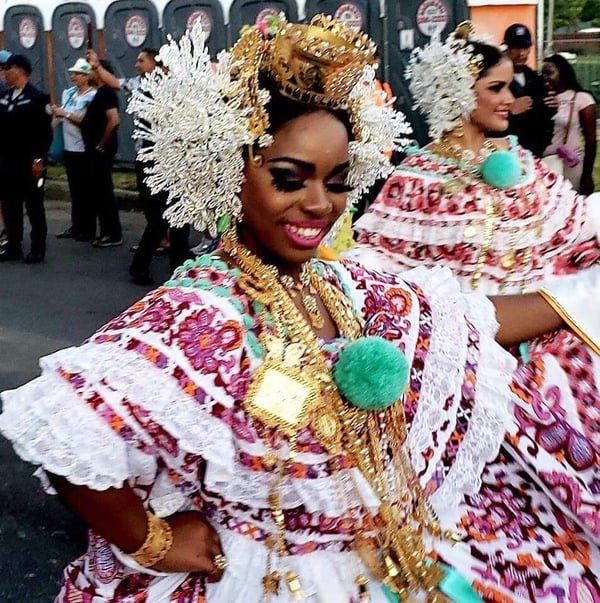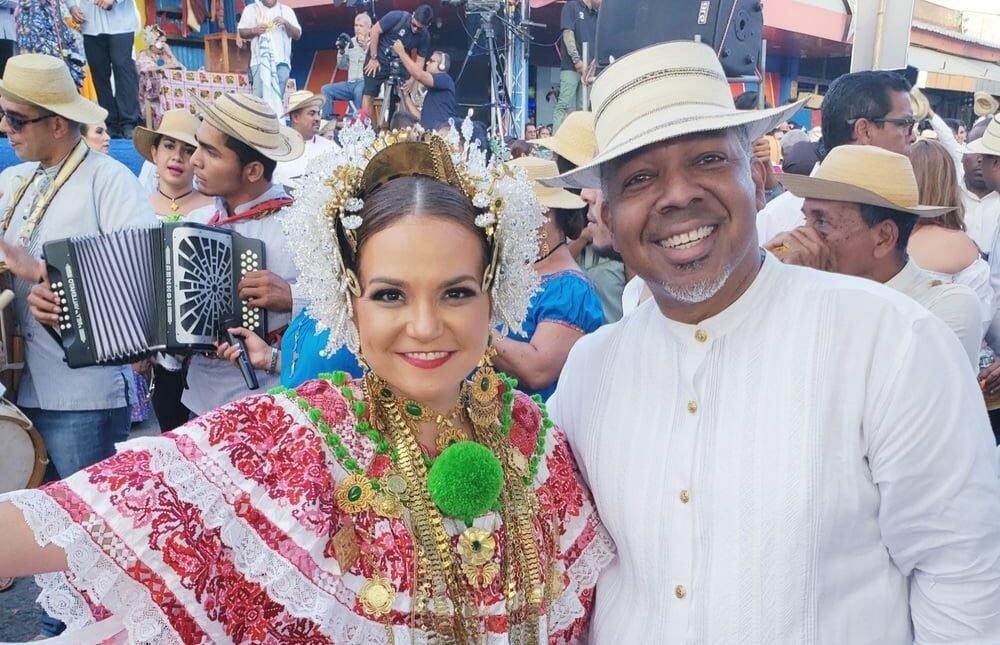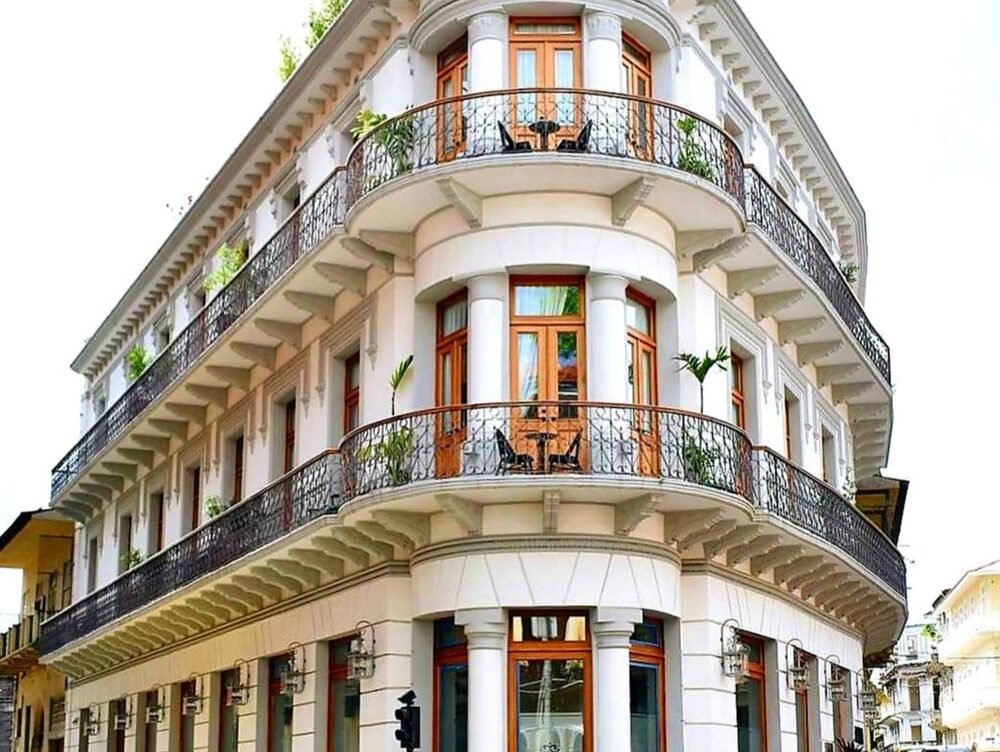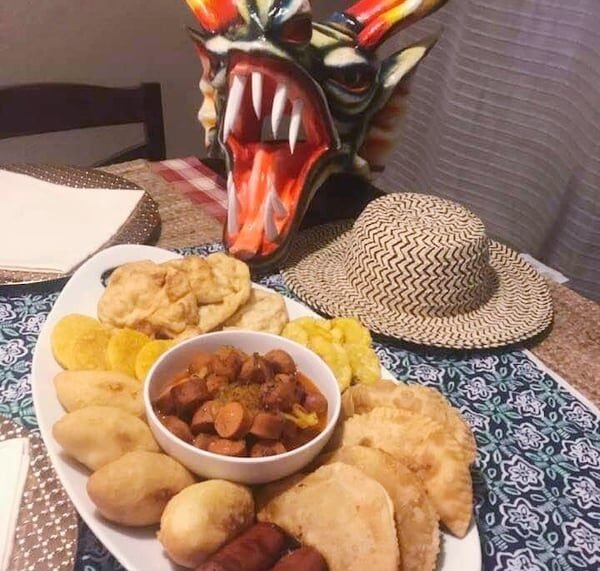Panama is all about Culture
encounter of races and cultures found in the Isthmus.
Here on the Isthmus of Panama – you can find the best harmony,
peace and tolerance that will swell life. The Hispanic heritage beats
especially in the regions of Azuero and Coclé where tradition and
culture is highly valued.
The African legacy dazzles in the showy Congo dances, a tradition
settled in the province of Colon, while the native people keep alive
their roots.
The Spectacular Pollera
(Panamanian folkloric Dress)

Red & White Pollera
Pollera is a Spanish term for a large one-piece skirt and blouse used mostly in traditional festivities and folkloric dances.
Polleras are handmade of materials, such as lace and cotton with embroideries to decorate. Normally, the dominant color is white, and adornments are colorful flower designs.
A handmade Pollera can cost from several hundred to several thousand dollars and can take up to a year to create. The gold and pearl mosquetas and tembleques head pieces in their hair provides a pollera an elegant finish.

The Spectacular Pollera
The 1,000 Polleras Parade (Desfile de las Mil Polleras) which takes place annually on a Saturday in mid-January in the town Las Tablas, known as the center of folklore.
The street festival is a fitting place for the Thousand Polleras Parade, which commemorates Panamanian culture. This is a family celebration, and tourists from ALL around the world attend to join this colorful and most festive parade.

Come Celebrate with US!
Panamanian culture is a hybrid of African, Native Panamanian, and European cultures – specifically Spanish. For example, the Tamborito is a Spanish dance that was blended with Native American rhythms and dance moves. Dance is a symbol of the diverse cultures that have converge in Panama.
The Pollera & Camisilla (Men’s shirt) in parade.
Panamanian Folkloric Dance
Called “Tipico” dance.
Credits by MiPollera.

Very Cosmopolitan
Panama's Gastronomic Experience

Come and enjoy the Blast of Culture.
Panama Historic Sites.

San Blas Islands

Bridge of the America's

Fort of San Lorenzo

Taboga Island

Del Carmen Church

Old Panama

Panama Skyline

Casco Viejo

The Presidency

The Causeway

Baha'i Temple

Portobello

Panama Canal

Embera Village

Santo Domingo Convent

F&F Tower

Congo Dancers

Las Tablas

Canal Museum

City Subway

Black Christ

Bio Museum

Mi Pueblito

The Golden Altar

Balboa Avenue


